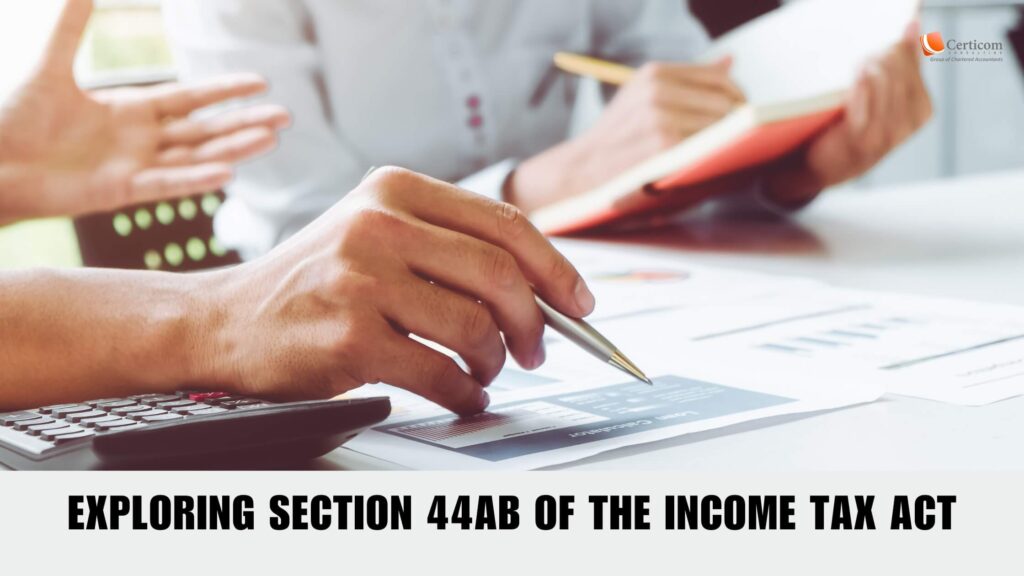Exploring Section 44AB of the Income Tax Act: Threshold Limits and Applicability

Section 44AB of the Income Tax Act outlines the requirement for individuals or entities engaged in business or profession to maintain regular books of accounts. When specific financial thresholds are met, a tax audit is mandated under this section to ensure compliance with various provisions of the Income Tax Act.
Purpose of Tax Audit
The tax audit mandated under Section 44AB serves several critical functions. It ensures that taxpayers’ financial records accurately reflect their income and that any claims for deductions are properly made. This process helps in identifying and preventing fraudulent practices. Additionally, a thorough tax audit aids in the efficient administration of tax laws by providing a clear and accurate presentation of accounts to the Assessing Officer (AO), ultimately saving time and resources.
Tax Audit Applicability: Who Needs to Comply?
Taxpayers must undergo a tax audit if their business turnover or gross receipts exceed specified limits during a financial year.
For Businesses
- A tax audit is mandatory if the business turnover exceeds ₹10 crore, provided that over 95% of the transactions are conducted digitally.
- If less than 95% of the transactions are digital, the turnover threshold for a mandatory tax audit is ₹1 crore.
This requirement does not apply to those who opt for the presumptive taxation scheme under Section 44AD, as long as their total sales or turnover do not exceed ₹2 crores.
For Professionals
- A tax audit is required if the gross receipts exceed ₹50 lakh.

Forms for Filing Tax Audit Reports
The tax audit report must be filed using specific forms based on the circumstances of the taxpayer:
- Form 3CA: Used when the individual or entity is already required to have their accounts audited.
- Form 3CB: Used when there is no prior requirement for an audit.
- Form 3CD: A detailed statement of particulars that must be attached to either Form 3CA or Form 3CB.
- Form 3CE: Applicable to non-residents or foreign companies receiving royalties or technical service fees from the Indian government or an Indian entity.
Penalties for Non-Compliance with Section 44AB
Failure to comply with the tax audit requirement under Section 44AB can result in penalties under Section 271B. The penalty is the lesser of the following:
- 0.5% of the total sales, turnover, or gross receipts.
- ₹1,50,000.
However, no penalty will be imposed if the taxpayer can demonstrate a reasonable cause for the failure to comply.
Valid Reasons for Delay in Filing a Tax Audit Report
In certain situations, delays in filing the tax audit report may be excused by Tribunals or Courts. Accepted reasons include:
- Natural calamities
- Resignation of the auditor or a key employee
- Extended strikes or lock-outs
- Loss of accounts due to uncontrollable events
- Physical inability or death of the partner responsible for handling accounts
These provisions ensure that while compliance is crucial, there is flexibility in extraordinary circumstances.
Related Post
Resident’s Guide to Buying NRI Property in India
Flipkart ESOP Compensation: ₹11 Crore Payout – Salary or Capital Receipt?
Book A One To One Consultation Now For FREE
How can we help? *




